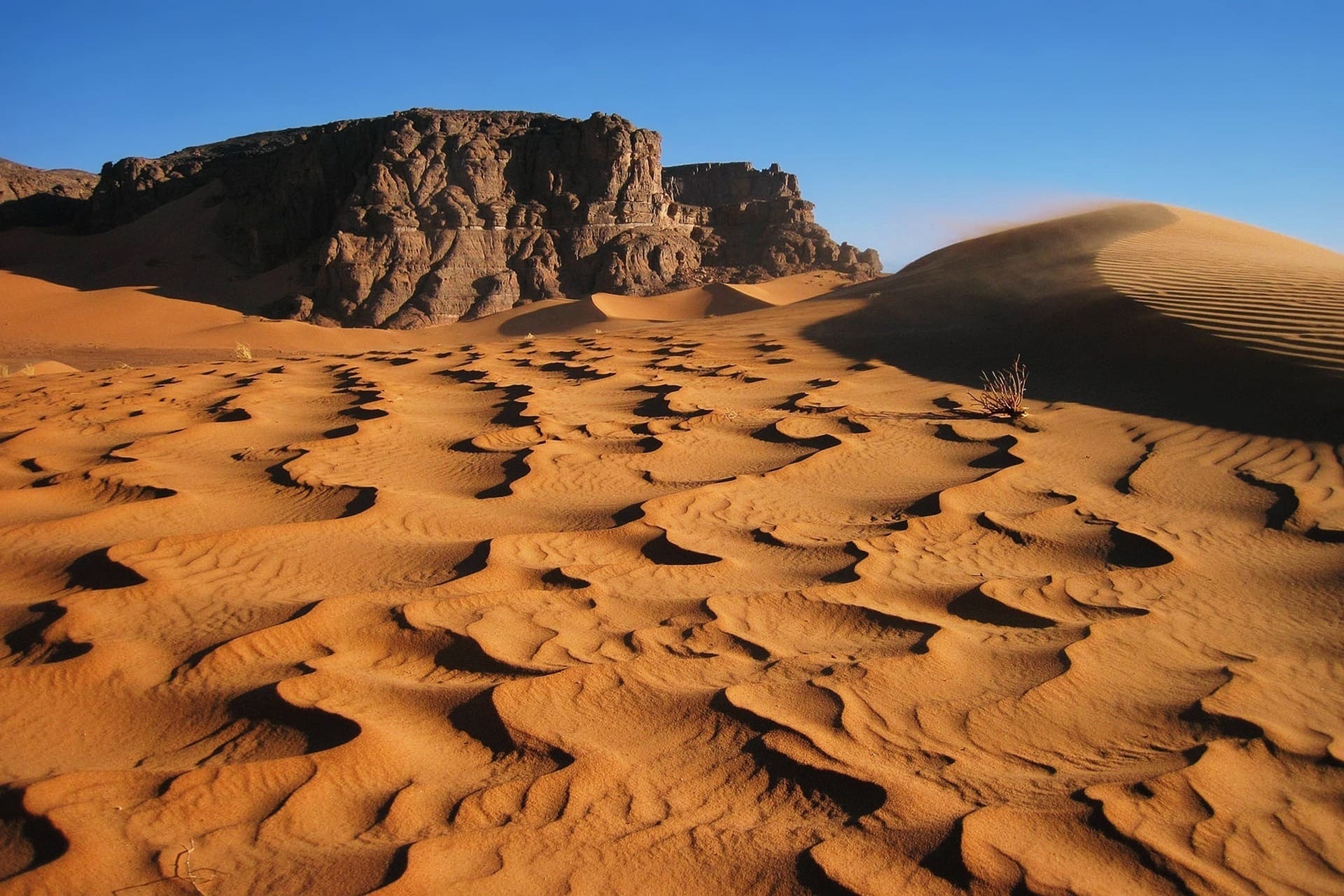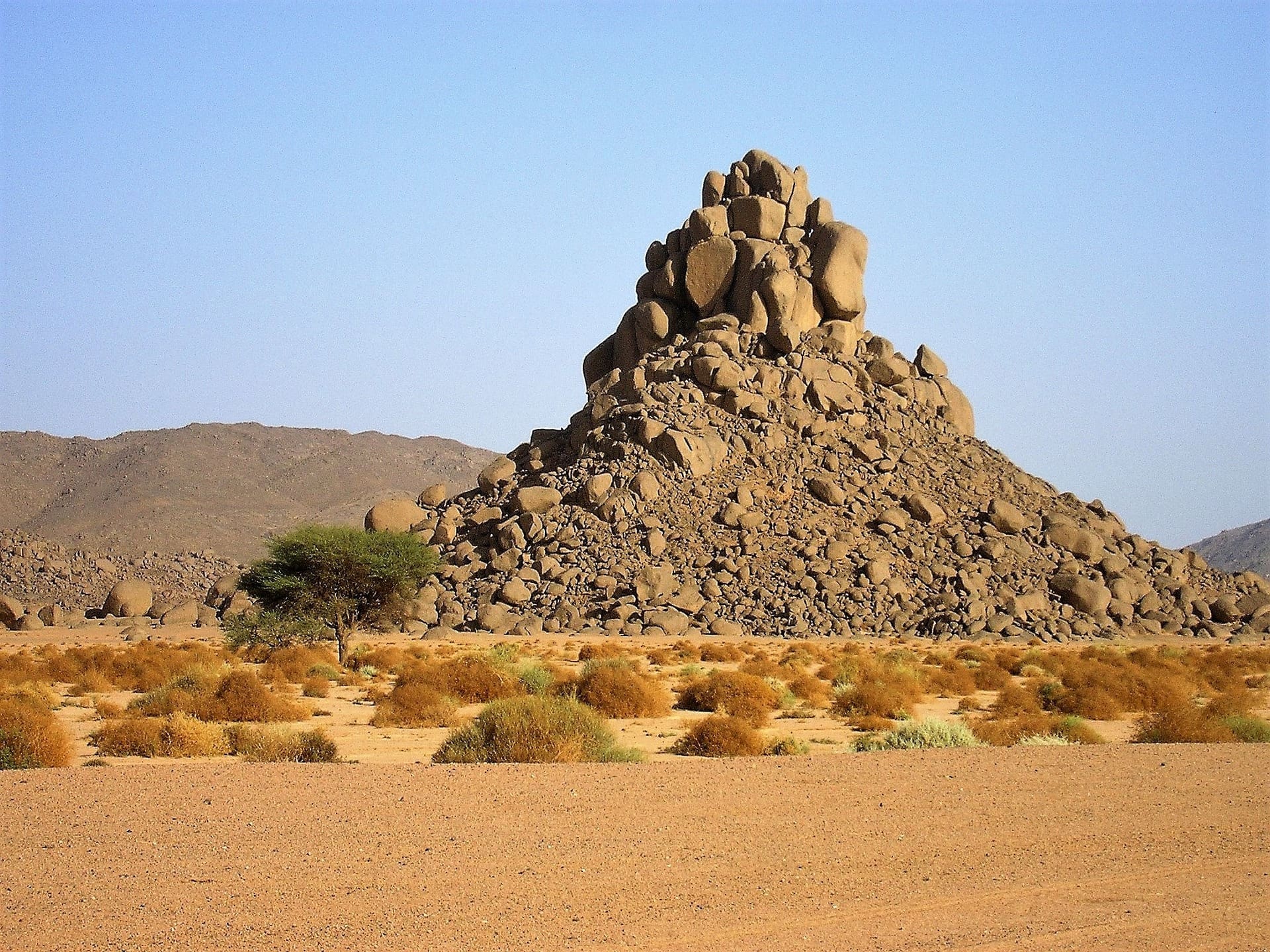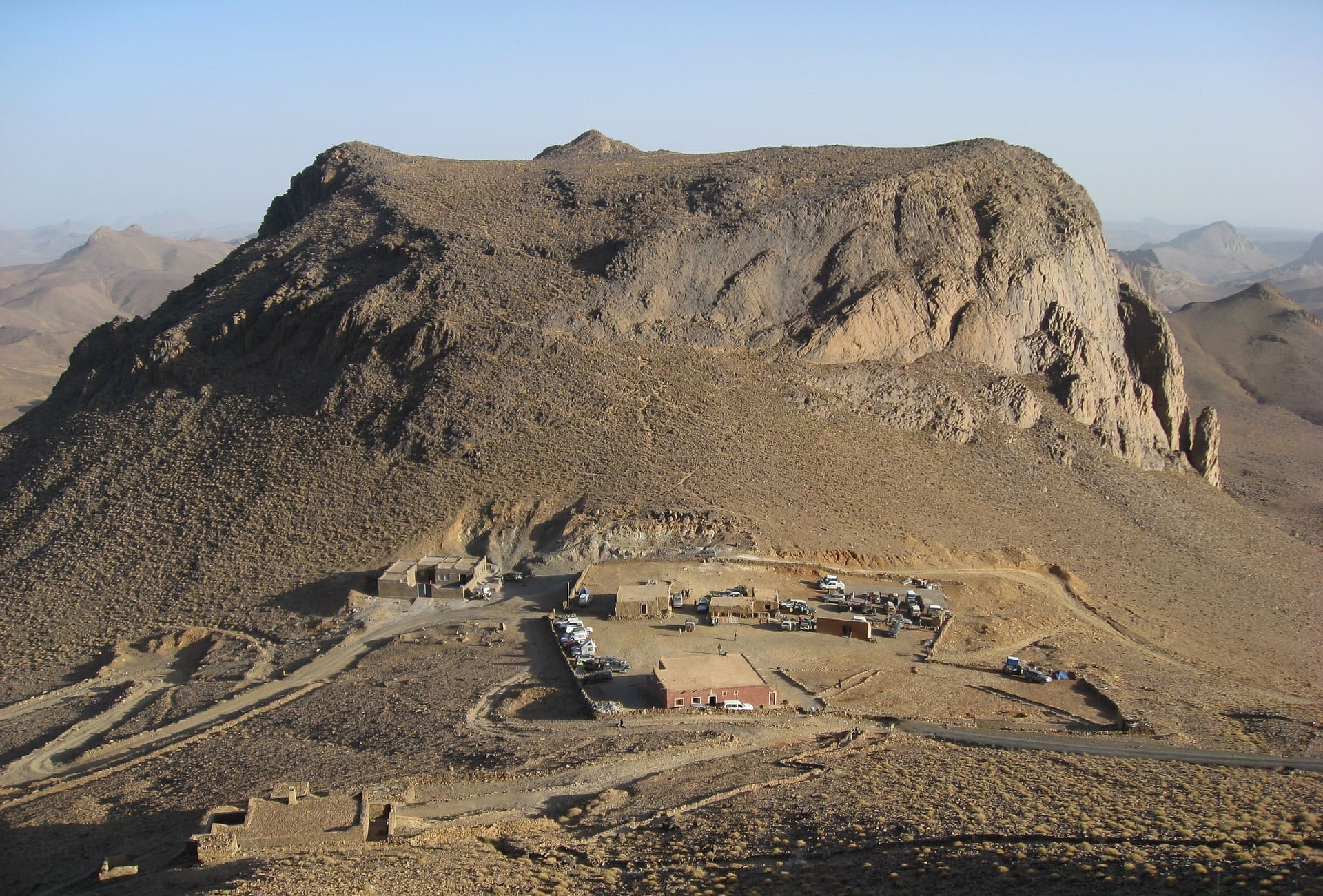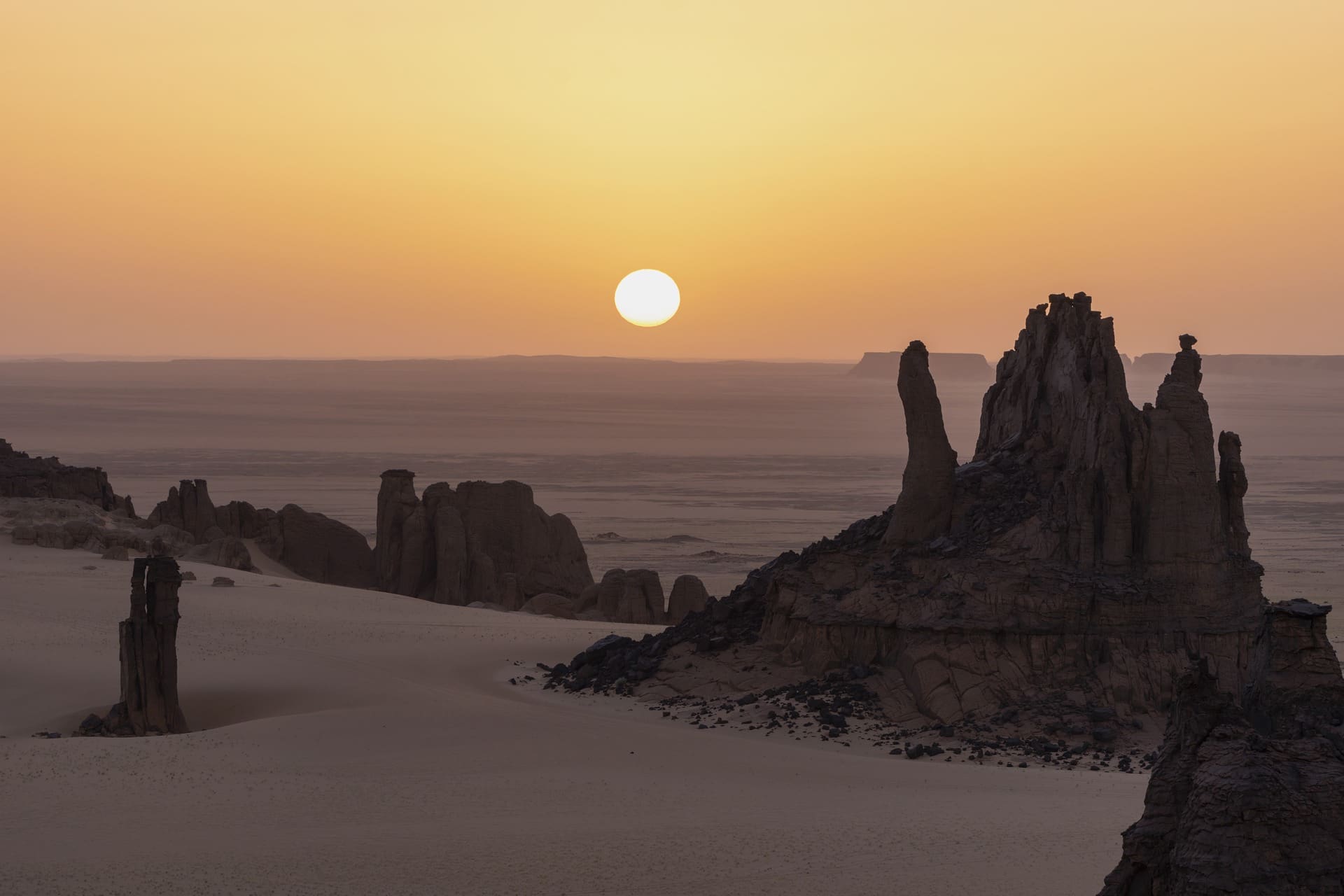Algeria
vibrant, diverse, historic, beautiful, resilient
About Algeria
Culture and Religion
Where to go
How to get there
Visa Requirements
Travelling Budget
About Algeria
Algeria, officially known as the People’s Democratic Republic of Algeria, is a country located in North Africa. Situated on the Mediterranean coast, it shares borders with several countries including Tunisia, Libya, Niger, Mali, Mauritania, Western Sahara, and Morocco.
Algeria is the largest country in Africa and the 10th largest in the world. It is known for its diverse landscapes, ranging from the Sahara Desert to the fertile plains of the Tell Atlas Mountains. The country’s geography also includes stunning coastal areas and unique natural sites like the Tassili n’Ajjer National Park, which is a UNESCO World Heritage site.
Algeria is a country rich in history and culture. It is home to ancient Roman ruins, such as the well-preserved city of Timgad, as well as Islamic architectural gems like the Great Mosque of Algiers. The country has a population of over 40 million people representing various ethnicities, with Arab-Berber heritage being prominent.
Algeria gained independence from France in 1962 after a long and bloody revolution. Since then, it has adopted a socialist-oriented government and has made significant strides in social and economic development. A major contributor to Algeria’s economy is its vast reserves of oil and natural gas, making it one of the leading oil producers in Africa.
The Algerian people are known for their warmth and hospitality, as well as their passion for football. The country has produced several world-class athletes, including Zinedine Zidane and Riyad Mahrez.
While Algeria has achieved progress in various sectors, it also faces challenges such as unemployment, corruption, and regional inequalities. However, the Algerian people have shown resilience and determination in overcoming these obstacles. In summary, Algeria is a captivating country with a rich history, diverse landscapes, and a vibrant culture. It continues to evolve and develop, holding great potential for the future.
Culture and Religion
Algeria’s culture is a blend of Berber, Arab, French, and Islamic influences. The Berber population, known as Imazighen, is the indigenous ethnic group in Algeria and contributes significantly to the country’s cultural heritage. Berber traditions and practices, including music, dance, and crafts, are celebrated and preserved.
Islam is the dominant religion in Algeria, with the majority of the population adhering to Sunni Islam. The practice of Islam greatly influences Algerian culture and daily life. Mosques are a common sight, and the call to prayer echoes throughout the country multiple times a day.
The Algerian society follows Islamic customs, including dress codes for women who often wear hijabs or other modest clothing. Islamic holidays and rituals, such as Ramadan and Eid-al-Fitr, hold significant importance, and many Algerians observe fasting and participate in communal prayers.
Arabic is the official language of Algeria, reflecting its ties to the wider Arab world. However, the Berber language, Amazigh, is recognized and has gained official status alongside Arabic in recent years. French is also widely spoken, as Algeria was a French colony until gaining independence in 1962. French influence can be seen in areas such as cuisine, education, and administration.
Algerian culture is rich in music, art, and literature. Traditional music genres like chaabi and raï blend Arab, African, and Western styles, and Algerian musicians have gained international recognition. Literature in Algeria, particularly in the French language, has a strong presence, with celebrated Algerian writers like Albert Camus and Assia Djebar.
Family holds a central place in Algerian society, with an emphasis on respect, loyalty, and hospitality. Extended families often live together, and kinship ties are highly valued. Sharing meals and hosting guests are customary, and Algerians are known for their warm and welcoming nature.
Overall, the culture and religion of Algeria form an integral part of the country’s identity, shaping its customs, celebrations, and way of life.
Where to go

Algiers
The capital city of Algeria, Algiers, is a vibrant and fascinating destination. Explore the historic Casbah quarter, visit the iconic Notre Dame d’Afrique, and wander through the lively streets of the city. Enjoy stunning panoramic views from the historical Kasbah of Algiers and explore the impressive architecture blending French colonial and Islamic influences.

Tassili n'Ajjer National Park
Located in the southeast part of the country, Tassili n’Ajjer is a UNESCO World Heritage site renowned for its breathtaking landscapes and ancient rock art. Discover unique rock formations, dramatic canyons, and curious rock engravings that date back thousands of years.

Sahara Desert
Explore the vast Sahara Desert, one of the most iconic natural wonders of Algeria. Take a camel trek across the sand dunes, witness mesmerizing sunrises and sunsets, and experience the tranquil isolation of the desert. Be sure to visit towns like Djanet and Timimoun that serve as gateways to the Sahara.
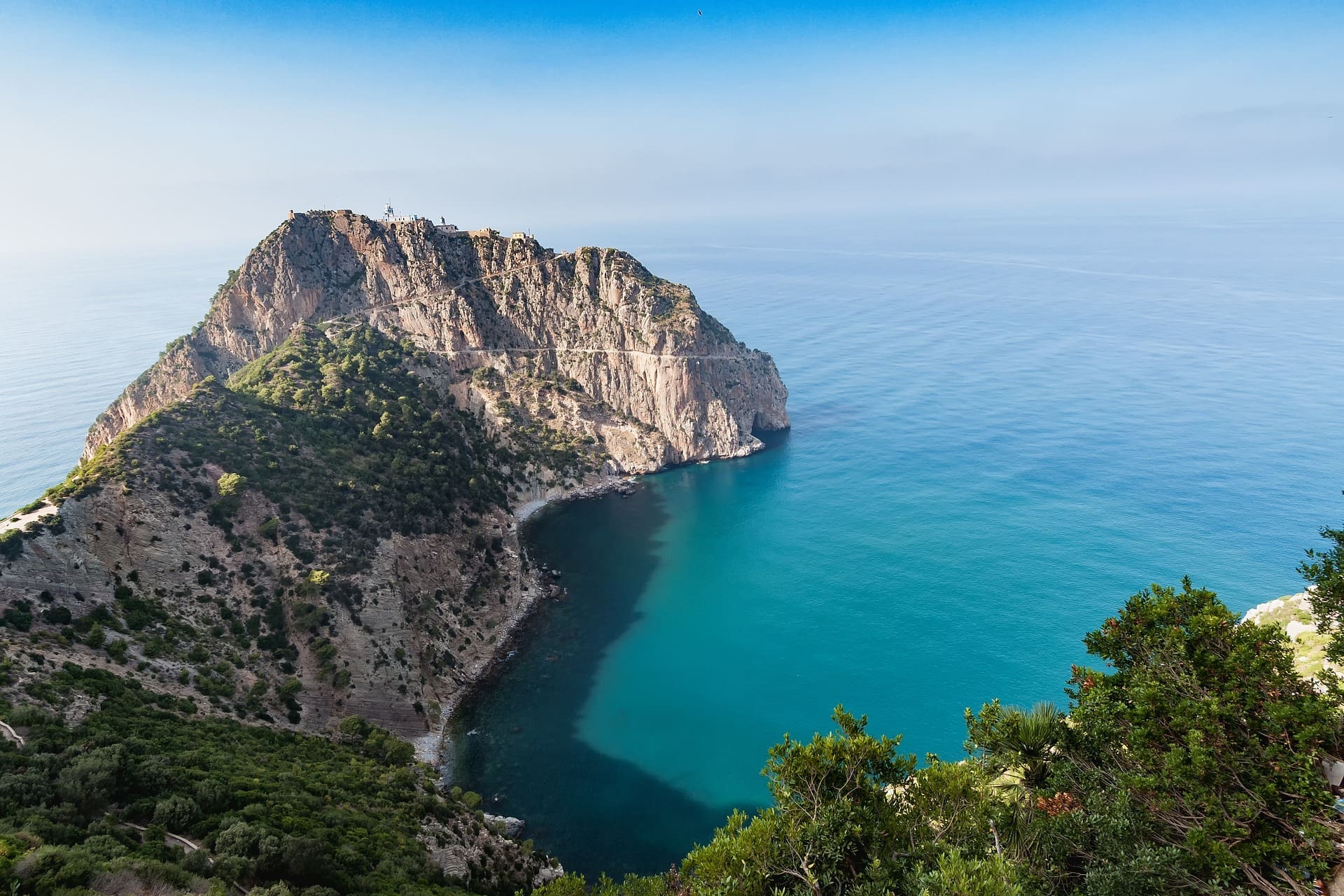
Oran
Located on the Mediterranean coast, Oran is a bustling port city with an intriguing mix of European and Algerian influences. Explore the historic quarter of Sidi El Houari, visit the landmark Santa Cruz Fort, and enjoy the vibrant atmosphere of the Grande Poste Square. Don’t miss the opportunity to relax on the beautiful beaches along the coastline.
Note: While these highlights offer a glimpse into Afghanistan’s beautiful cultural and natural landmarks, it is essential to stay informed about the security situation and follow travel advisories before planning a visit.
How to get there
There are multiple ways to reach Algeria, depending on your location and preference. Here are some common modes of transportation to get to Algeria:
By Air: Most international travelers arrive in Algeria through one of the major airports, such as Houari Boumediene Airport in Algiers, or Oran Ahmed Ben Bella Airport. Several airlines offer direct flights to Algeria from various countries, including Europe, Africa, and the Middle East. Connecting flights are also available through major hub cities.
By Land: Algeria shares borders with several countries, including Tunisia, Libya, Niger, Mali, Mauritania, Western Sahara, and Morocco. If you are in one of these neighboring countries, you can enter Algeria via land borders. Ensure you have the necessary travel and visa documents, as entry requirements may vary.
By Sea: Some travelers choose to reach Algeria via ferry. There are ferry services connecting Algeria with countries like Spain and France. For example, you can take a ferry from Marseille, France, to Algiers, Algeria. Check with the ferry companies for schedules and availability.
It is recommended to check with your local authorities or Algerian embassies for the latest travel advisories and entry requirements, as they may be subject to change. Additionally, consider booking accommodations and arranging transportation within Algeria prior to your arrival for a smooth and enjoyable trip.
Visa Requirements
Visa requirements for Algeria vary depending on your nationality. It is important to check with the Algerian embassy or consulate in your home country for the most accurate and up-to-date information. However, here is some general guidance:
Most visitors to Algeria require a visa to enter the country. There are different types of visas available, including tourist visas, business visas, and diplomatic visas.
To apply for an Algerian visa, you will typically need the following documents:
1. A valid passport with a remaining validity of at least six months from the intended date of entry into Algeria.
2. Completed visa application form.
3. Two recent passport-sized photographs.
4. Proof of travel arrangements, such as flight itineraries.
5. Proof of accommodations in Algeria, such as hotel bookings.
6. Proof of sufficient funds to cover your stay in Algeria.
7. Letter of invitation or supporting documents (if required for your specific visa category).
8. Proof of travel insurance (sometimes required).
9. Visa fee payment (varies depending on nationality).
In some cases, additional documents, such as a letter of sponsorship, may be required.
It is advised to apply for your Algerian visa well in advance of your intended travel dates as processing times may vary. The visa application process can be done through the Algerian embassy or consulate in your home country. Ensure you have all the required documents and meet the eligibility criteria before submitting your application.
Again, it is crucial to check with the Algerian embassy or consulate for the most accurate and detailed information regarding visa requirements specific to your nationality.

![Algeria 4x [ain-taya]](https://travelhd.nu/wp-content/uploads/2023/08/Algeria-4x-ain-taya--scaled.jpg)
Travelling Budget
The cost of traveling to Algeria can vary depending on the duration of your trip, your travel style, and personal preferences. Here are some factors to consider when planning your travel budget for Algeria:
Accommodation: The cost of accommodation in Algeria can vary depending on the city and type of accommodation. In major cities like Algiers, Oran, and Constantine, you can find a range of options from budget hotels to luxury resorts. On average, budget accommodations can cost around $20-40 per night, while mid-range hotels can range from $50-100 per night. Higher-end hotels and resorts can cost upwards of $150 per night.
Transportation: Public transportation in Algeria, such as buses and trains, is relatively affordable. Domestic flights within the country can also be an option but may be more expensive. Taxis and car rentals are additional transportation options, and their costs can vary depending on distance and negotiation.
Food and Dining: Algeria offers a variety of dining options, including street vendors, local eateries, and restaurants. Street food and local eateries can provide more budget-friendly options, while dining in restaurants can be relatively more expensive. On average, budgeting around $10-20 per day for food should cover basic meals and snacks.
Activities and Sightseeing: Algeria has a wealth of cultural and historical sites to explore. Entrance fees for attractions and museums can vary, but they are generally affordable. Additionally, budgeting for optional activities such as guided tours or excursions should be considered.
Miscellaneous Expenses: It’s a good idea to have some extra money for unforeseen expenses, shopping, and souvenirs. It’s advisable to have a buffer in your budget for unexpected costs that may arise during your trip.
It is important to keep in mind that these are estimated costs, and actual expenses can vary depending on individual choices and preferences. It is recommended to research and plan your specific itinerary to get a more accurate idea of the costs involved in your travel to Algeria.
What makes your journey easier
Everything you need to know about what to bring to make your travels easier, more safe and fun
Be Mindfull
Gadgets
Gear
Insurance
Visa


